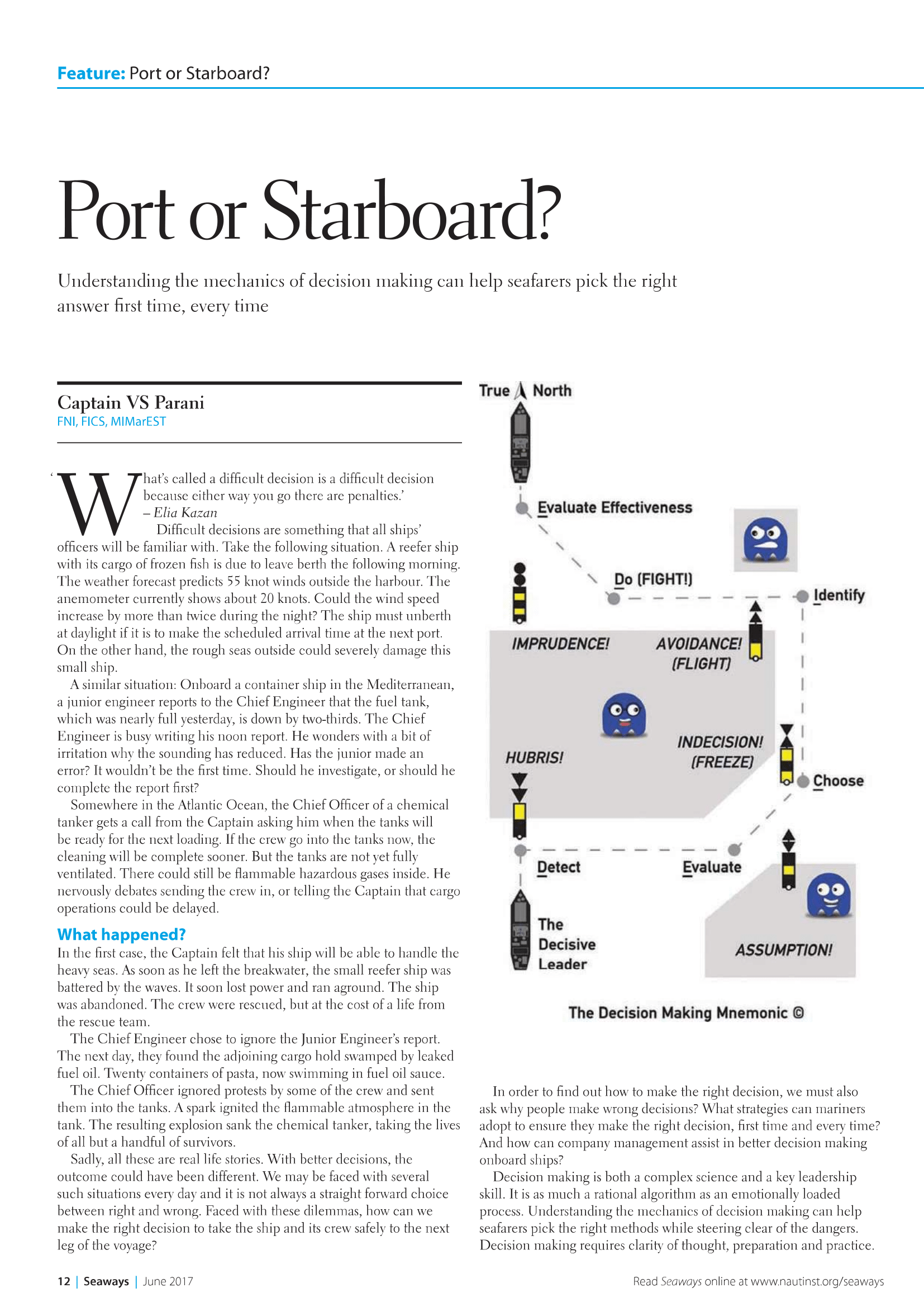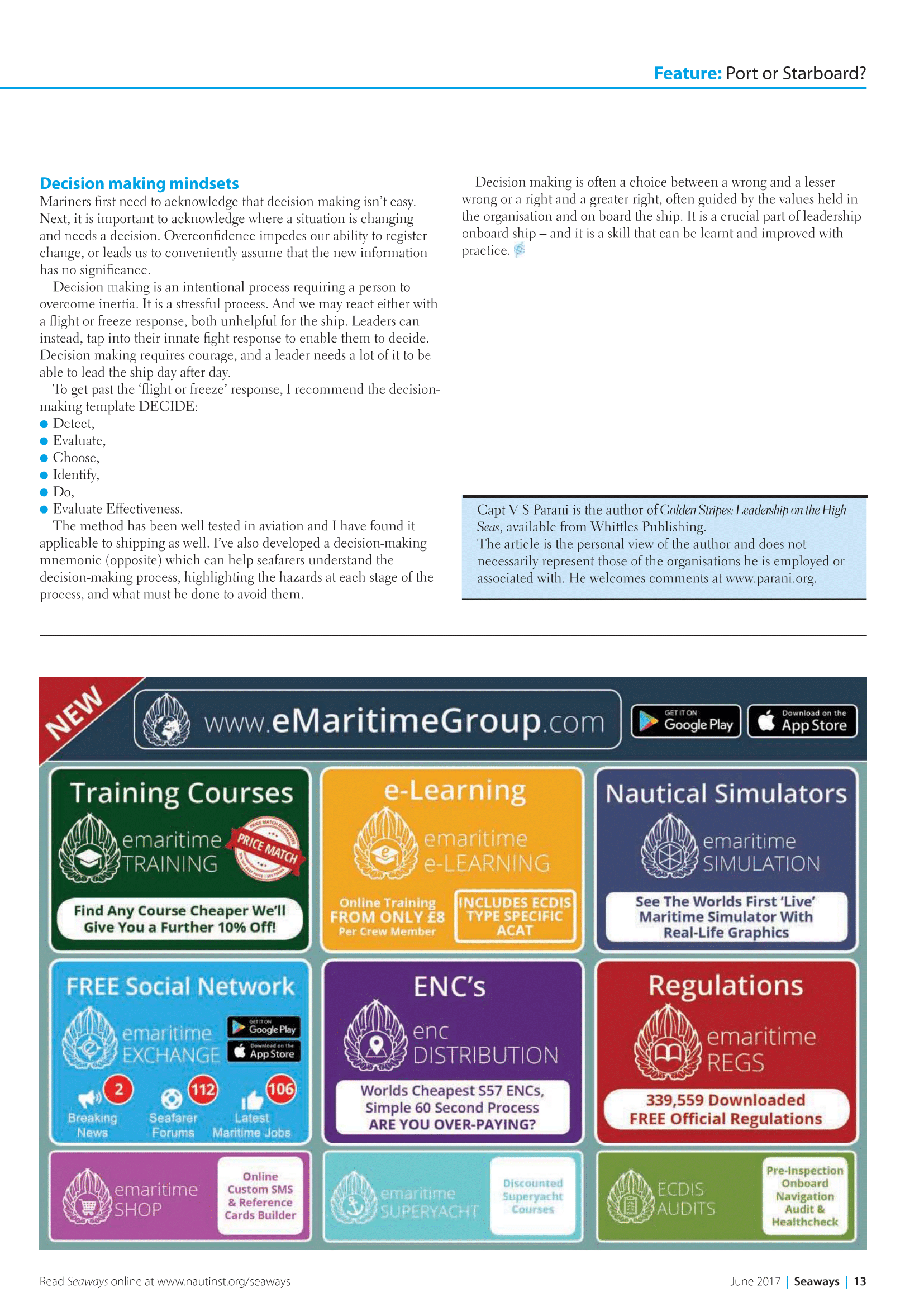Happy to share my DECIDE Model to help understand the decision making process. The article was published in the Nautical Institute Seaways journal, June 2017
The complete explanation can be found in the book Golden Stripes- Leadership on the High Seas




